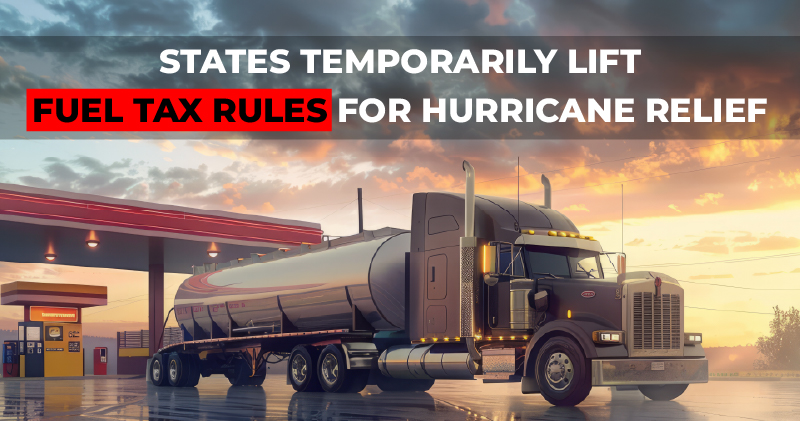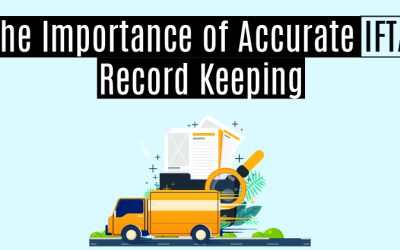
In response to the severe damage caused by Hurricanes Milton and Helene, several U.S. states have temporarily lifted fuel tax regulations to accelerate recovery efforts. Illinois, Maryland, Alabama, Tennessee, and North Carolina have all taken steps to waive International Fuel Tax Agreement (IFTA) registration requirements, ensuring that aid can reach hurricane-stricken areas without delay.
Illinois Steps Up for Disaster Relief
Illinois Governor J.B. Pritzker announced the temporary suspension of IFTA registration and Motor Fuel Use Tax (MFUT) single-trip permits for vehicles involved in disaster relief. This waiver, in effect from October 11 through November 9, allows qualified vehicles assisting in interstate hurricane relief to travel through Illinois without facing penalties for IFTA or MFUT non-registration, as long as they provide proof of their destination in the affected areas.
“Here in Illinois, we understand the devastating effects of climate change, and we’re here to support ongoing relief efforts in any way we can,” said Governor Pritzker. The waiver is intended to expedite the transportation of essential goods and services, ranging from emergency supplies to utility repair teams, enabling faster recovery for communities in need.

Other States Follow Suit
Maryland’s Comptroller Brooke Lierman followed a similar course, issuing an IFTA waiver effective through November 10. The waiver applies to motor carriers transporting critical supplies to assist with recovery efforts in Florida, including utility restoration and other essential services.
Alabama also took early action in late September, announcing a 30-day suspension of IFTA and International Registration Plan (IRP) requirements for vehicles aiding in interstate disaster relief. Tennessee and North Carolina have also enacted similar exemptions for vehicles traveling to assist in hurricane relief efforts, helping reduce bureaucratic delays.
Florida Responds to Fuel Shortages
As Florida copes with the aftermath of the hurricanes, the state has implemented several measures to ensure emergency vehicles can operate efficiently. The Florida Department of Transportation has lifted weight restrictions for emergency response vehicles and is allowing them to bypass weigh stations. In addition, the Florida Highway Patrol has taken charge of escorting fuel trucks to areas critically low on fuel, while managing traffic at key ports and fuel sites to avoid delays.
Conclusion: Supporting Relief Efforts with Technology
At TMS-Digital, a leading provider of Transportation Management Systems (TMS) in the U.S., we wholeheartedly support these temporary fuel tax waivers. We recognize the importance of seamless logistics in disaster recovery, and we are committed to offering advanced TMS solutions that help streamline operations for those providing relief. Our software empowers transportation companies to plan, track, and execute their deliveries with precision, even during challenging circumstances.
If your organization is involved in disaster relief or managing complex logistics, now is the time to explore how TMS-Digital can enhance your efficiency. Contact us today to learn how we can help you optimize your fleet operations and contribute to the recovery process.









